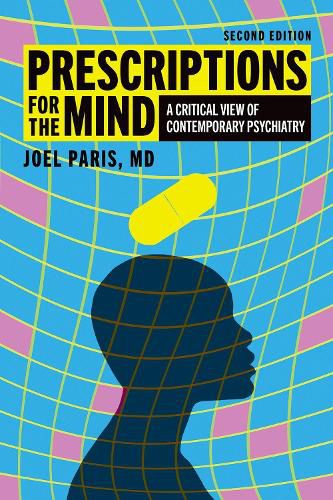Readings Newsletter
Become a Readings Member to make your shopping experience even easier.
Sign in or sign up for free!
You’re not far away from qualifying for FREE standard shipping within Australia
You’ve qualified for FREE standard shipping within Australia
The cart is loading…






Prescriptions for the Mind has been revised from its first edition in light of new developments in research and practice over the last 15 years. (These updates involve changes of 50% in the text). The book will be a critical assessment of where psychiatry stands today, as a science, and as a method of treatment. While the text acknowledges the triumphs of psychiatry, it takes a critical view of what is known, what is unknown, and what ideas and practices are most likely to stand the test of time. Its conclusions will be rooted in the principles of evidence-based psychiatry. It shows that both drugs and psychotherapy need to be prescribed with their limitations in mind.The book will combine findings from many disciplines to develop an interactive biopsychosocial model of mental disorders. It will show that a purely biological perspective, as well as a purely psychosocial perspective, can lead to bad treatment choices. Its overall message about mental disorders is to think interactively. These principles are then applied to a wide range of categories of psychopathology (psychoses, mood disorders, PTSD, personality disorders), as well as how they can be applied to the practice of psychiatry, in both pharmacological therapies and psychotherapies.
$9.00 standard shipping within Australia
FREE standard shipping within Australia for orders over $100.00
Express & International shipping calculated at checkout
Prescriptions for the Mind has been revised from its first edition in light of new developments in research and practice over the last 15 years. (These updates involve changes of 50% in the text). The book will be a critical assessment of where psychiatry stands today, as a science, and as a method of treatment. While the text acknowledges the triumphs of psychiatry, it takes a critical view of what is known, what is unknown, and what ideas and practices are most likely to stand the test of time. Its conclusions will be rooted in the principles of evidence-based psychiatry. It shows that both drugs and psychotherapy need to be prescribed with their limitations in mind.The book will combine findings from many disciplines to develop an interactive biopsychosocial model of mental disorders. It will show that a purely biological perspective, as well as a purely psychosocial perspective, can lead to bad treatment choices. Its overall message about mental disorders is to think interactively. These principles are then applied to a wide range of categories of psychopathology (psychoses, mood disorders, PTSD, personality disorders), as well as how they can be applied to the practice of psychiatry, in both pharmacological therapies and psychotherapies.